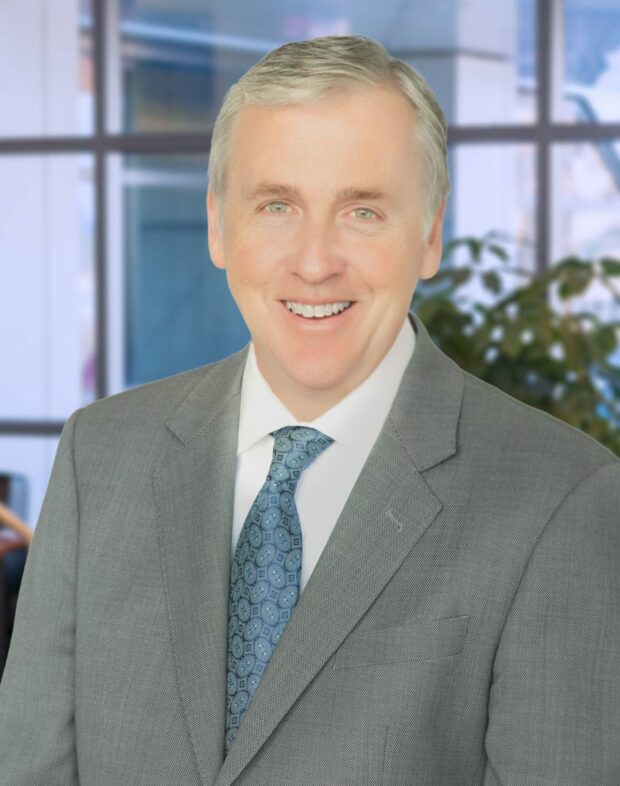HOME | ABOUT US | MEDIA KIT | CONTACT US | INQUIRE
HOME | ABOUT US | MEDIA KIT | CONTACT US | INQUIRE

University Health announced Thursday president and CEO, Charlie Shields was elected the new Chair of America's Essential Hospitals. Photo Credit: University Health
Q: What does having the new title of Chair for AEH mean for, not only yourself, the healthcare system you operate at University Health?
"Frankly, those of us who serve an under-served population primarily through Medicaid and Medicare need some additional funding streams appropriated by Congress just like how they recognize other hospital designations."
A: I have been involved in AEH since my time here at University Health in 2010 and find it, of all the different hospital organizations out there, most closely reflects our mission values at University Health only on a national level. I always describe it as sitting in a board meeting with your peers who run similar organizations across the country, that’s very important to me and one of the reasons I have been so excited about AEH and taking on a leadership role.
Q: Take a look back on your time as a Missouri senator, what kind of policy were you advocating for then and how is it translating in the new position of AEH chair?
A: In my time as states senator, I was involved in the first Medicaid rewrite which changed what was Missouri Medicaid to MO HealthNet. I was also very involved in what is now called the stroke and STEMI (severe type of heart attack) designation for hospitals. I’ve always been, from a policy standpoint, around healthcare. My background as a policymaker is helpful as Chair of AEH because so much of our work depends on public policy. A key role of AEH is to help hospitals such as University Health and advocate for the people it serves.
Q: How do you think AEH can help better the availability of essential hospitals?
A: Our goal at AEH is to create a federal designation for hospitals like University Health. In the past, Congress—through Medicaid and Medicare—recognized different kinds of hospitals whether it be cancer hospitals, small-rural hospitals, critical access hospitals or children’s hospitals and those designations would affect the funding stream of those different hospitals. What AEH is advocating for is what we call a safety-net designation that will change how we are funded. Frankly, those of us who serve an under-served population primarily through Medicaid and Medicare need some additional funding streams appropriated by Congress just like how they recognize other hospital designations. I would say we are not there yet but we are closer than we have ever been and remains our highest advocacy role.
Q: With coverage rates for health insurers continuing to rise, do you think essential hospitals will become more of a necessity for people seeking healthcare services?
A: What we have to remember is, with Medicaid expansion, more people are in coverage but there are still those without. I can tell you we continue to serve a population of people with no health insurance. Also remember, in the payer world, Medicaid is still considered a low-dollar payer so we have to advocate for better reimbursement on that system on a national level.
So, it is not just about coverage, it’s also about fair payment within the government system and I would also argue fair payment within the commercial insurance system for those hospitals that look like us (University Health) who serve primarily Medicaid but we still serve commercial-insured patients as well.
Q: With University Health being an academic medical center, what is the potential for essential hospitals to be training new healthcare providers in the recent struggle of labor shortages?
A: It’s interesting, there is a high correlation between safety net hospitals and academic medicine. If you look at members of AEH, there are a lot of hospitals that look like University Health in that we are a safety net hospital and an academic center. We are the perfect training ground for positions in healthcare providers of the future. Our trainers and learners here see more variety and complexity than almost any other hospital, creating the perfect opportunity.
The other factor is when the learners are serving the under-served population, it plants in their mind how important health equity is. If the only patient you ever see is a fully-insured person from suburbia, you might not see the issue but if you serve the people we at University Health see who face significant social health challenges it cements it in their minds. That will help us decades down the road.
Posted July 5, 2023